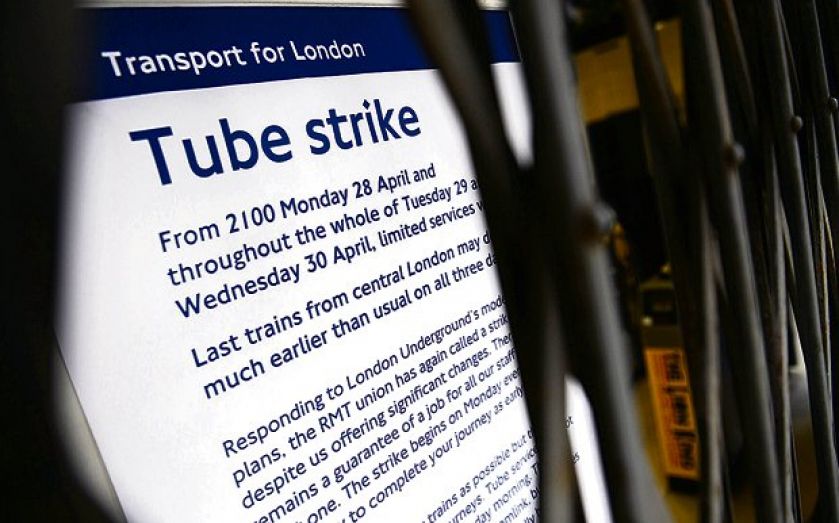How tech can offer Tube strike relief

New “sharing economy” apps could help commuters survive future union action
MANY are extolling the virtues of the “sharing economy” – where people rent out underutilised assets from each other through the internet. Despite concerns over regulation and security (sharing companies Lyft and Uber have both recently faced lawsuits), collaborative consumption is catching on. Forbes has estimated the sharing economy will grow by 25 per cent this year, with $3.5bn (£2.1bn) in revenue flowing directly into people’s pockets. But can it really reach scale, or is it just tech’s latest buzz-term?
This week could provide the answer. As thousands of Tube workers strike in a row over ticket office closures, hundreds of thousands of commuters have been forced onto bike, bus or boat in their battle to get to work. But for London’s 3.5m Underground users, sharing technology could help ease the pain. Here are six of the best apps to help you survive strike action in the future.
1 LIFTSHARE
For those willing to hop in the passenger seat of a stranger’s car, Liftshare could be an attractive option. In response to rising travel costs, the network anticipates members will share an estimated 507m miles over the next 12 months. It now has over 30,000 journeys available within the M25.
One member commutes from Cambridge to Canary Wharf each day with a people-carrier full of passengers. His reward is £14,000 a year – enough to cover all of his travel and car maintenance costs. Such was his popularity that he has now created a spin-off: Cambridge Car Share.
2 PARKATMYHOUSE.COM
The app enables stranded commuters to drive to work, safe in the knowledge that they will have a parking space waiting for them on arrival. According to its website, on average, spaces booked through ParkatmyHouse cost less than half the price of the closest meter or car park. A parking space on Pepys Street, for example – a stone’s throw from Tower Hill or Fenchurch Street stations – costs £141.50 per week.
3 WAZE
And if you do dare to get behind the wheel, crowd-sourced app Waze can help you dodge the gridlock. The mapping and navigation tool offers real-time traffic updates, and charts congestion-free routes. For those pedalling to the office, it also helps cyclists find quiet roads.
4 HAILO
The black taxi app – now available in more than a dozen cities across three continents and with 14,000 drivers on the London roads – came to the rescue during February’s strikes, when demand spiked to levels higher than on New Year’s Eve. One user even claimed on Twitter: “It turned a potential nightmare into a dream”.
5 SHAREMYOFFICE
The sharing economy meets hot-desking, Sharemyoffice is perfect for those who could work from home, but would struggle to resist ditching the spreadsheet for the sofa. You can rent a desk by the day, at locations in and around the city. A newly-decorated shared office in Wimbledon, for instance, has two desks and a kitchen, and is available for £65 per week.
6 AIRBNB
A pioneer in the sharing economy, home rental service Airbnb hit headlines earlier this month when its valuation soared to $10bn (despite its ongoing battle with New York regulators). And for Tube strike victims, it offers accommodation near the office without the price-tag. An ensuite double room in the Isle of Dogs, for example, starts from £65 a night.
Get around town
Citymapper
FREE
The must-have London transport app. Plug in any journey, and Citymapper will offer a plethora of ways to get from A to B. The app also offers real-time information on all modes of transport, weather news, alerts and disruptions. The “take me home” button will instantly direct you home from any location. For those on foot, it will even estimate how many calories you’ll burn.